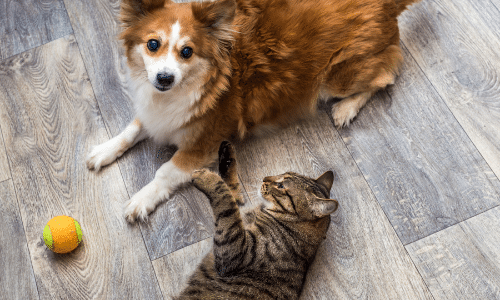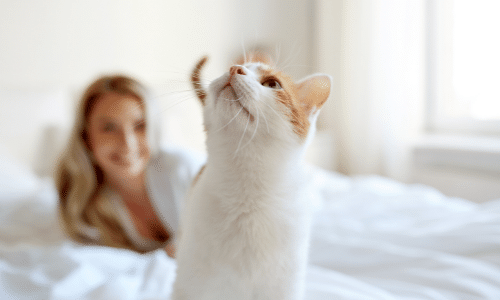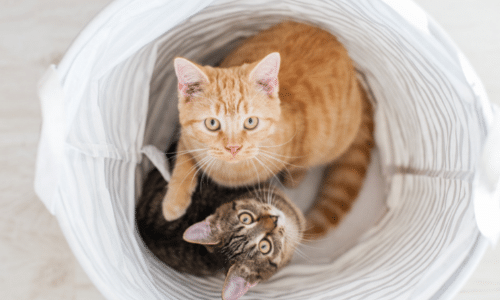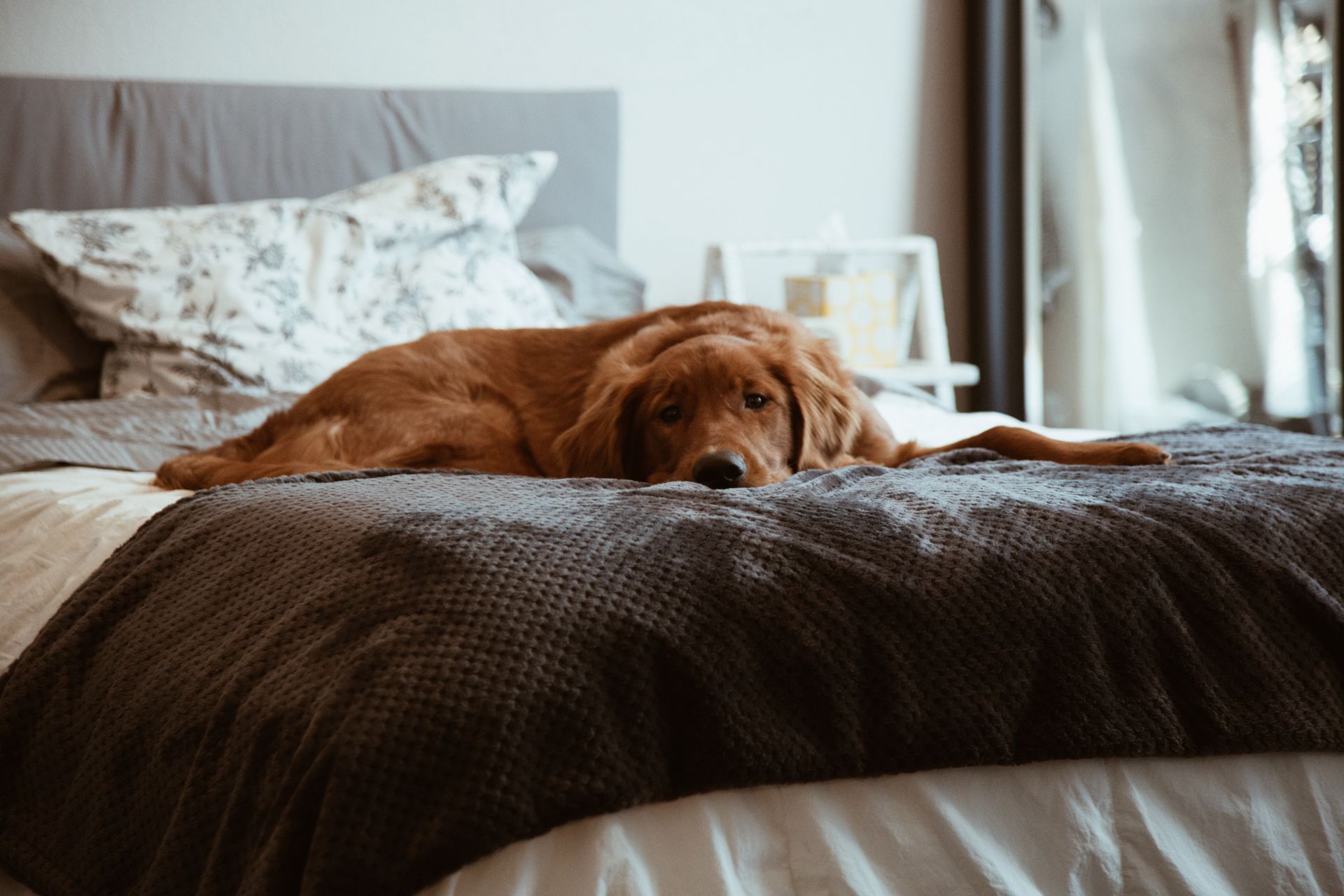GET YOUR GOLD COAST APARTMENT HOME PET-READY
Gild is pleased to offer pet-friendly apartments and amenities. We’ve collected tips and tricks here to aid your transition and help guarantee that your four-legged friend will seamlessly adapt to Gold Coast, high-rise living in no time.*

DOGS!
ELEVATOR TRAINING
Elevators can be a potential source of stress and anxiety for animals, mostly due to space constraints and unfamiliar movement. With patience, treats, and TLC, getting your dog acquainted with the elevator will help ease apprehension. Our most helpful tip is to start small; before taking the big trip up or down, practice just opening the elevator door and walking in and out. Positive verbal affirmations and treats can go a long way in helping your pup adjust. Being mindful of high traffic times will also aid your training and keep the environment low-stakes for all involved.

COMMUNICATION WITH BUILDING MANAGEMENT
Before you secure a brand-new apartment, it’s important to have a conversation with a property manager or leasing consultant about living with a pet, including your dog’s breed and information about building rules and fees associated. Websites usually provide the information you need, but a phone call will keep you most up to date. Being armed with knowledge and a budget can help avoid unnecessary stress.
WALKING ROUTINES
Mapping out the best walking routes in your new neighborhood and sticking to them consistently will provide your dog with familiarity and help them work through any ‘zoomies’! Regular exercise and socialization are important for our furry friends, particularly when living in compact quarters. The ideal amount of daily exercise depends on the breed and overall fitness, but recommendations for a generally healthy canine is about 30 minutes.

CATS!
ESTABLISHING ROUTINE
Like humans, cats need a consistent routine to feel safe and secure in their own home. Ensuring that meals, playtime, and clean-up are on a fairly set schedule will help your kitty adapt to their new environment much more quickly. Tailoring your routine to include the special activities they love can sweeten the deal and benefit both pet and owner. A few minutes dedicated to brushing their fur keeps the coat healthy and contributes to bonding.

SAFE PLACE TO HIDE
A cat’s natural instinct is to find a safe place to hide when scared. Without it, they can remain in a state of heightened fear, which sometimes leads to unwanted bites and lashing out. Providing a dedicated safe space (or two) for your cat in their new apartment will help them feel protected. Time spent hanging out in solitude also helps kitties stay calm and regain their composure before re-joining the world. Need any ideas for an enclosed nesting space? Shelves, laundry baskets, and cardboard boxes are great places to start.
PHEROMONE DIFFUSERS
A handy product for lowering stress levels and anxiety in felines, pheromone diffusers provide familiarity and stability for cats in the home. These diffusers mimic multiple types of pheromones, however, most products mimic that of the ‘feline facial’ – what’s left behind when a cat rubs their cheek against an object. Available in a variety of forms, they can be purchased as a spray, plug-in, wipes, or collar.

ABOUT GILD
Gild provides elegant studio, 1 bed, and 2 bed apartments in the heart of the Gold Coast neighborhood in Chicago. Live in an intimate boutique-style building that is pet friendly and offers pet-centric amenities like an outdoor dog run and an indoor dog spa to wash your four-legged best friend after their playtime. Additional building amenities include an outdoor terrace, rooftop sundeck with grill stations, rooftop resident lounge, a fully-equipped fitness studio, bike room, parking garage with electric vehicle charging stations, and a lobby with a concierge desk and contact-free package pickup. Learn more about our available apartments and become a part of the Gild community, a new chapter for the historic Gold Coast.
*DISCLAIMER: The material in this blog has been written for educational purposes only. It should not be regarded as veterinary medical advice. Please consult with a Doctor of Veterinary Medicine before applying what you learn from this blog.
RECENT POSTS



